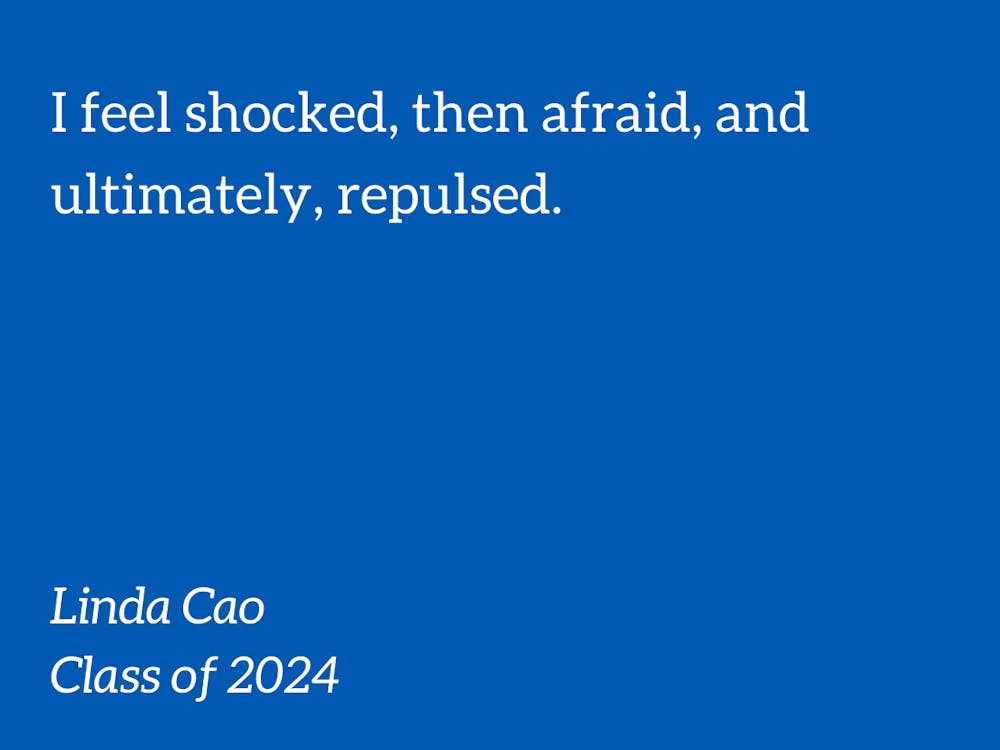I grew up in Florida, which is a state infamous for its peculiarity. Among all peculiarities, a common one is that some Floridians’ first kiss was one of their cousins. Disclaimer: not everyone in Florida goes around making out with their relatives (@Alabama), but it was a quirky fun fact about a few too many people I knew. However, no matter how many times I heard the same “we were just fooling around” story, I always first felt shocked, then afraid, and ultimately, repulsed. My extreme reaction told me that this shouldn’t be happening.
Last weekend, I saw an Instagram post from an old middle school classmate, who was one of these “quirky” people, and I still cringed in my seat, even years later.
Scrolling down, I see the post below report that the U.S. has nearly 76.4 million COVID-19 cases and over 900,000 deaths.
I wait for the wave of panic or sorrow to hit me. Instead, I feel nothing.
Alright.
Moving on.
It’s times like these when I think back to the beginning of the pandemic. Twitter was blowing up with the thirty-seventh hashtag of the day, creating a hybrid of #QuarantineandChill and #Covidiots. We had Gal Gadot and Tom Ruffalo sing “Imagine” to us as if that contributed anything substantial besides deterring me from ever watching Wonder Woman again. Across from this patch of green grass, on the other side, psychologists were observing a dramatic increase of anxiety and depression, families were crumbling under the collapse of the economy, and every news channel seems to be chanting “terror, terror, terror” throughout the broadcast. Even if you don’t remember any of this, at least, you remember feeling an incomprehensible tornado of emotions.
Yet, at the final hour now, we seem to have collectively reached the same conclusion that Vanessa Hudgens reached nearly a year ago: “people are going to die.”
900,000 people, specifically. Our energy, which drive our care and attention, is limited. Unfortunately, we don’t have enough emotional capacity to digest the deaths of 900,000 people. Even if you are a notorious ~empath~, it is far too draining and exhausting. Therefore, it seems inevitable that we’ve become desensitized to the pandemic.
I’m not here to discuss the morality and philosophical connotations of our desensitization to COVID-19. People don’t care that people are dying. A more accurate statement would be that people don’t care that marginalized, vulnerable demographics of people are dying. But then that would trigger people to defend the CDC and the government for doing the best they can with the knowledge they had during unprecedented times. Yet, I believe that people in power can only justify so many of their actions as flaws of being human when they get to play god.
But should we care? Should this, our desensitization, be happening?
Some would argue that society’s desensitization to COVID-19 could be justified, if only we knew that we would regain our humanity after the crisis is over. Yet, with recent reports from Dr. Ezekiel J. Emanuel, we are potentially entering an endemic, meaning that the coronavirus is here to stay.
A new variant comes out this year. It kills the people who are susceptible to it. Pharmaceutical companies might be able to pump out another booster. Alright. Moving on. A new variant will come out next year. It kills the people who are susceptible to it. Alright. Moving on. A new vari—do you see the problem?
How are we to ever wake ourselves up from the desensitization of a pandemic if it never ends? I scroll past these statistics, millions of millions of people dying, without blinking an eye because all I really care about is to watch the new episode of Euphoria.
I look at myself, at what I’ve become.
I feel shocked, then afraid, and ultimately, repulsed.
We’ve become immune to the statistics; big number don’t scare us anymore. Instead, to humanize ourselves, we need to humanize the pandemic. Integrate yourself into more personal recollections and experiences of the pandemic. Read about how India is struggling to keep children in school because of technological obstacles and why online schooling is a nearly impossible alternative. Talk to your friends and family about the pandemic, not in terms of number of new cases, but in terms of people, such as which families in the neighborhood are the most vulnerable to the variants and how we could support them. The pandemic is alive and well, and it’s not going to disappear simply because you ignore it.
Sometimes, the manic, pessimistic part of me worries that we will become a generation of sociopaths. For example, I’m afraid I’ll go outside one day and find people playing kickball with a decapitated head on a cemetery. Then again, I also had the inexplicable fear that society would fall into anarchy because of the pandemic. Clearly, that hasn’t happened (yet).
So, what is to become of our generation? I honestly have no idea. However, decades later, when my grandchildren come running to me, asking me about the pandemic for their school project, I would like to tell them the truth.
I would like to tell them that, at the time of the pandemic, people were first shocked, then afraid, but ultimately, they cared. At the end of the day, that was the most any of us could have really asked for.
Linda Cao is a Trinity sophomore. Her column runs on alternate Thursdays.
Get The Chronicle straight to your inbox
Signup for our weekly newsletter. Cancel at any time.
Linda Cao is a Trinity senior and an opinion managing editor of The Chronicle's 119th volume.

